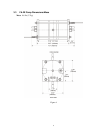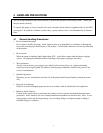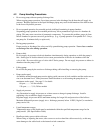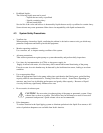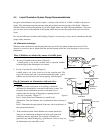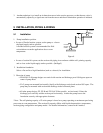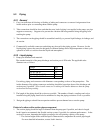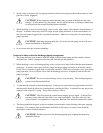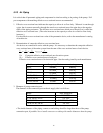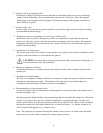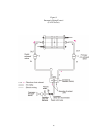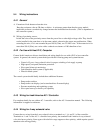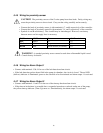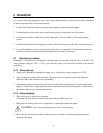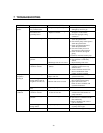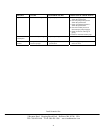
14
5.2.3 Air Piping
It is critical that all pneumatic piping and components be sized according to the porting of the pump. Full
port components with matching effective cross-sectional area are recommended.
1. Effective cross-sectional area indicates the capacity to allow air to flow freely. When air is sent through
a pipe, the air cannot run totally through the actual cross-sectional area of the pipe due to the negative
effect of the piping resistance. The de facto cross-sectional area which serves the air flow is called the
effective cross-sectional area. (The value increases as the capacity to allow air or fluid to flow freely
increases.)
For the effective cross-sectional area value of the pneumatic device, refer to the manufacturer's catalog
of each device.
2. Determination of composite effective cross-sectional area:
Air devices are connected in series with the pump. It is necessary to determine the composite effective
cross-sectional area of the entire system from the sum of the cross-sectional areas of each device.
1 1 1 1
S
2
(S1)
2
(S2)
2
(Sn)
2
S = Composite effective cross-sectional area for entire system
Si = Effective cross-sectional area of each part
Effective cross-sectional area of air device/air pipe: See the catalog issued by each manufacturer.
Model Composite effective cross-sectional area
FA-2
6.0 mm
2
0.009 in
2
FF-10
10.5 mm
2
0.016 in
2
FH-10
11.8 mm
2
0.018 in
2
FF-20, FF-40
13.2mm
2
0.020 in
2
FH-20, FZ-20
19.5mm
2
0.030 in
2
FA-40, FH-40
19.5mm
2
0.030 in
2
3. Diameter of pump connection port:
The diameter of the connection port on the air supply side is as follows:
Model Pipe Thread Size
FA-2 1/8" PTF
FF-10, FH-10, FF-20 1/4" PTF
FH-20, FZ-20 3/8" PTF (FZ: NPTF)
FA-40, FF-40, FH-40 3/8" PTF
• The inside diameter of the piping connectors and tubing should be larger than those of the pump
connection port, if possible. Never install connectors or tubing with smaller diameters than the pump.
= + + +



